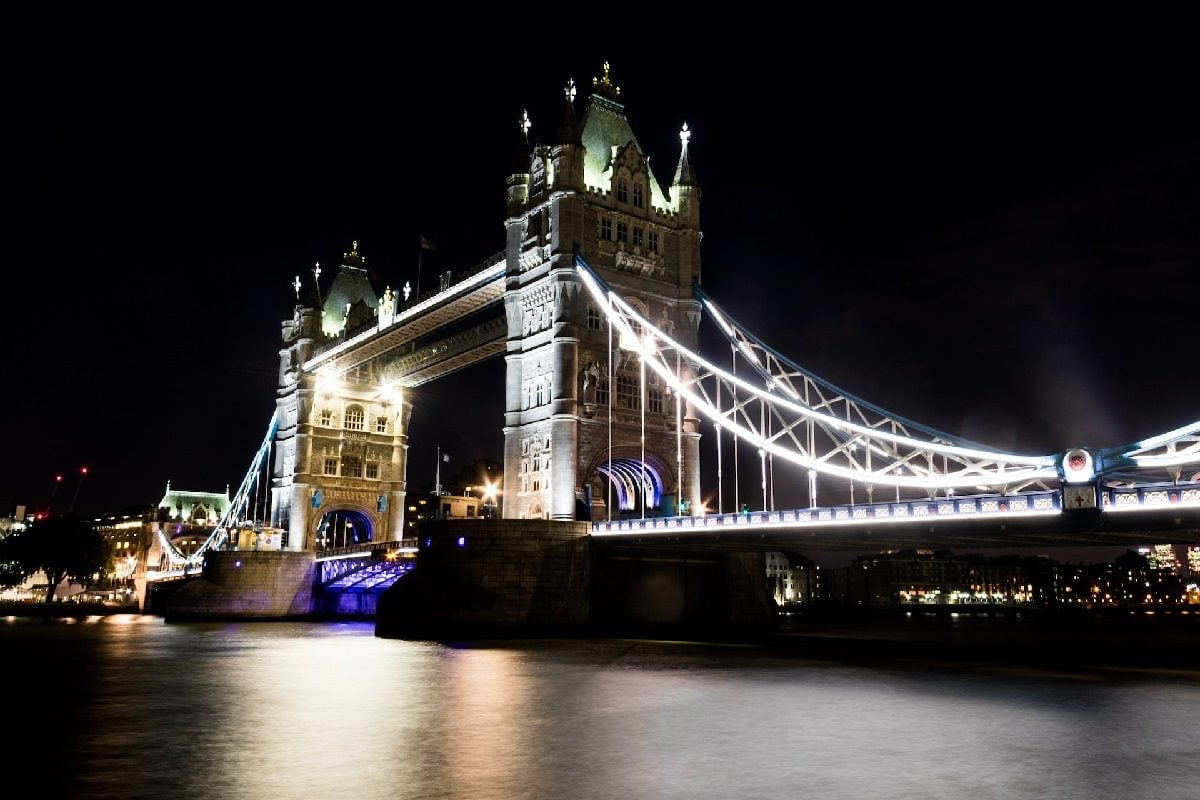UK Citizenship for Nigerians
There are a number of ways to obtain British citizenship status, including ones specifically for Nigerian individuals and other citizens of the Commonwealth.
IAS can assist with your immigration enquiries from both our UK offices and our office in Lagos. For more information about our legal services and how we can help you, reach out to us today. Our UK number is +44 (0) 3316300929, and our Nigerian number is +2342013438882. Or, use the online contact form to submit an enquiry.
Read our 1001 reviews
Request a call back from our immigration experts
Immigration Advice Service Nigeria

Get in Touch
Benefits of Choosing IAS for Your Citizenship Application
IAS is the ideal choice for your UK citizenship application. Whether you are registering as a citizen by birth, marriage, naturalisation, or ancestry, we can help you.
Our expert, capable lawyers can help address a wide range of issues and concerns, helping to make the process of applying for citizenship simple and hassle-free.
At IAS, we are committed to offering the highest-quality level of service available in the law sector. When getting in touch with us for help, you will:



Get expert, success-oriented assistance for all steps in the citizenship process.



Be fully prepped on all Home Office-required documents and evidence you will need to submit.



Receive regular check-ins from your personal immigration lawyer throughout the entire process.



Enjoy continued support beyond your citizenship application, such as if your family members also decide to apply.
Services we Provide
Looking to Become a British Citizen?
We are experienced immigration lawyers with expertise in both UK and Nigerian immigration. Our friendly advisers can work with you to help determine the best route to the UK for your circumstances.
Start your new life in the UK with IAS.
Nigerian Emigration
For Nigerian emigration matters, please call +44 (0) 3316300929 or +2342013438882
Other Immigration and Emigration Matters
For immigration/emigration to/from other countries, please call:
US – +1 844 290 6312
Ireland – (+353) 061 518 025
UK – (+44) 333 4149244
Overview of British Citizenship
British citizenship status is often the final step for people who wish to settle in the UK permanently. Holding British citizenship means that you will have full, unrestricted rights to reside in the UK forever.
You will also be able to:
- Work and study in the UK with no restrictions
- Be able to apply for a British passport
- Vote in elections and stand for public office
- Travel to and from the UK without restrictions
- Spend unlimited time outside of the UK without losing your status
As Nigeria allows its citizens to hold dual citizenship, you will be able to obtain British citizenship and apply for a British passport without surrendering your Nigerian citizenship or Nigerian passport.
There are a number of different ways to obtain British citizenship, each with its own complex set of eligibility criteria. These routes are outlined in detail in the following sections.


How Can I Become a British Citizen?
Below are the main ways that Nigerians are able to obtain citizenship:
- Naturalisation through indefinite leave to remain or through being the spouse or civil partner of a British citizen
- Being born in the UK
- Having a British parent
- Through the Windrush Scheme
Note that this is not an exhaustive list of routes to citizenship, but rather an overview of the most common ways that foreign individuals can claim British citizenship.
Citizenship Through Naturalisation
Overview
Citizenship through naturalisation is a popular route to citizenship for Nigerian applicants as it’s one of the more generally accessible routes than most others.
This route requires you to first obtain indefinite leave to remain (ILR), which is the UK’s form of permanent residency. ILR can be obtained through a range of different visa and immigration options, such as various work visas.
You will normally be able to apply for citizenship once you have held ILR status in the UK for 12 months.
Eligibility
In addition to having held ILR for 12 months, you must also meet the following eligibility criteria to be able to apply for citizenship through naturalisation. You must:
- Be over 18
- Have lived in the UK exactly 5 years prior to the date of your application. In addition, you must:
- Not have spent more than 450 days outside the UK during the 5 years prior to the date of your application
- Not have spent more than 90 days outside the UK in the last 12 months prior to the date of your application
- Prove your knowledge of English, Welsh or Scottish Gaelic
- Pass the Life in the UK test
- Intend to continue living in the UK on a permanent basis
- Be of good character and not have broken any UK laws or immigration laws.
Naturalisation Through Marriage or Civil Partnership
If you’re married to, or in a civil partnership with, a British citizen, you may be able to obtain British citizenship slightly quicker.
To be eligible for this route, you must meet the following eligibility criteria. You must:
- Be over 18
- Be legally married to, or in a civil partnership with, a British citizen
- Have lived in the UK exactly 3 years prior to the date of your application. In addition, you must:
- Not have spent more than 270 days outside the UK during the 3 years prior to the date of your application
- spent more than 90 days outside the UK in the last 12 months prior to the date of your application
- Hold indefinite leave to remain status
You must also pass the Life in the UK Test, prove your language skills and be of good character.


Language Requirements for Naturalisation
If you wish to naturalise as a British citizen, you’ll have to prove that you can speak English at the minimum required level.
You can do this by doing any of the following:
- Passing a Secure English Language Test (SELT) at B1 level or higher
- If you previously used a B1 level qualification when you applied for indefinite leave to remain, you can use it again for your citizenship application even if it has expired since your ILR application
- Having a degree that was mainly taught in English
- You may need to obtain a certificate from Ecctis to prove this.
You will not need to prove your language skills for citizenship if:
- You’re 65 or over
- You have a long-term physical or mental condition that prevents you from proving your language skills
- You’re applying for citizenship through another route other than naturalisation, such as citizenship through birth.
Life in the UK Test for Naturalisation
Another eligibility criteria for citizenship by naturalisation is passing the Life in the UK Test.
The test comprises 24 questions about UK politics, history, society and customs. You must answer at least 18 questions correctly in order to pass the test.
There are a few situations where you won’t need to take the test, such as the following:
- You previously already passed the test, such as if you had to take it to obtain indefinite leave to remain
- You are under 18 or over 65
- You have a long-term physical or mental condition that prevents you from taking the test
It costs £50 to take the test. The test must be taken at an approved test centre in the UK.
Good Character Requirements for Naturalisation
In order to obtain citizenship through naturalisation, you need to be of “good character”.
This is a very broad term that covers a number of different factors. However, it generally means that you should not be involved in, or found to have been involved in, any questionable, objectionable or illegal activities that might cast doubts on your ability to be a good citizen.
For example, you may not be considered to be of “good character” if:
- You’ve been convicted of a crime or there are reasonable grounds to believe you’ve been involved in a crime
- This also includes war crimes, crimes against humanity, terrorism, or “actions that are considered not to be conducive to the public good”
- You are not considered to be financially sound, such as if you have unpaid debts or have not paid taxes
- If you’ve previously been found to be dishonest or deceptive in dealing with the UK government
- If you’ve breached any immigration laws
- If you’ve previously been stripped of your citizenship for any reason
Note that this is not an exhaustive list and it is ultimately up to the Home Office’s own discretion to judge “good character”.
Citizenship Through Birth
Obtaining British citizenship through birth can be an incredibly complex process due to the fact that there are multiple factors to consider for your individual circumstances.
Because of the numerous different factors at play that determine your eligibility for British citizenship by birth, it is impossible to list them all here. However, the factors that you may have to take into account could include the following:
- If you were born outside the UK
- The immigration or citizenship status of your parents
- Where your parents were born
- Whether your parents were married or not when you were born
- When you were born
It’s highly recommended that you seek the advice of an immigration professional when pursuing this route due to the reliance of historical documentary proof and specificity of eligibility. IAS can assist you in the process of determining your status, and the easiest way for you to obtain citizenship. Call our UK number on +44 (0) 3316300929, or our Nigerian number on +2342013438882 for further help and assistance.
Citizenship Through Having a British Parent
You may automatically be a British citizen if one or more of your parents is a British citizen. However, similarly to citizenship through birth, there are a range of factors you must take into account before you can be certain of this.
These factors can include the following:
- When you were born
- Where you were born
- Whether or not your British parent could pass on their citizenship to you
- Whether your parents were married or not when you were born
- The immigration status of your parents, and which parent is a British citizen
- Where your parents lived when you were born
It may be possible that due to your circumstances, you might not be automatically entitled to British citizenship. However, you may be able to apply to become a British citizen in certain situations.
If you require further assistance with determining your eligibility for citizenship, reach out to one of our immigration advisers for a one-on-one advice session. Call our UK number on +44 (0) 3316300929, or our Nigerian number on +2342013438882, or reach out to us online.
Citizenship Through the Windrush Scheme
The Windrush Scheme is a special scheme specifically aimed at Commonwealth citizens or children of Commonwealth citizens who came to the UK in the 70s and 80s.
As Nigeria is part of the Commonwealth, you may be able to apply for British citizenship or leave to remain in the UK through this scheme if you or your parents have settled in the UK.
You may be able to apply for citizenship if one of the following applies to you:
- You’re a Nigerian citizen, you were settled in the UK before 1 January 1973 and have continuously lived in the UK since then
- One of your parents is a Nigerian citizen and was settled in the UK before 1 January 1973 or had right of abode. You must also either:
- Have been born in the UK
- Have come to live in the UK before turning 18
You may alternatively be able to apply for one of the following if you don’t exactly fit the eligibility criteria for citizenship:
- Indefinite leave to remain
- A Returning Resident visa
- A 10 year multiple entry visa
Obtaining indefinite leave to remain or a Returning Resident visa will eventually mean that you will be able to apply for British citizenship after the qualifying period of time has passed (12 months in the UK with ILR status).
How Can I Apply for Citizenship?
In most cases, you can apply for citizenship online through the gov.uk website.
The exception to this is if you’re applying through the Windrush Scheme, which requires you to apply by post.
You may be able to apply by post if you wish to obtain citizenship through another route. However, this is generally discouraged as this will take significantly longer than applying online.
As part of the online application process, you will have to fill in the application form with your personal details and family history.
You will also have to provide a range of supporting documents. You can do this by either uploading them online when you apply, or bringing them with you to your appointment at a UK Visa and Citizenship Application Services (UKVCAS) service point or UK visa application centre. It is at this appointment where you will also provide your biometric information.
UKVCAS service points can be found throughout the UK. Meanwhile, there are three UK visa application centres in Nigeria:
- Abuja
- Lagos Ikeja
- Lagos Victoria Island
How Much Does Citizenship Cost?
The fees for applying for citizenship are £1,605
In some cases, if you’re automatically eligible to claim citizenship, you won’t have to pay an application fee.
You may also be eligible for a fee waiver if you’re under 18 and cannot afford to pay the application fee, such as if you cannot afford basic costs or cannot afford a place to live.
Note that there may also be additional costs associated with applying for citizenship. You may have to pay for your official documents to be translated into English, or to take a Secure English Language Test (SELT).
What Are the Processing Times?
The time it takes for you to obtain British citizenship will vary greatly based on the following factors:
- If you’re applying from inside the UK or from Nigeria
- If you apply online or by post
- How complex your immigration or family situation is
- If you’re asked by the Home Office to provide extra details, documents or personal information
- If you have to book and attend a citizenship ceremony in the UK
However, generally speaking, it will take the Home Office around 6 months to process your application once you have supplied all your personal information, documents and biometrics.


Applying for a British Passport
Once you obtain citizenship status, or find that you’re automatically a British citizen due to your circumstances, you’ll be able to apply for a British passport.
You’ll need to provide a range of supporting documents to apply for your first British passport. These will vary based on your personal circumstances, but may include the following:
- A birth or adoption certificate
- Your parent’s birth certificates
- Your parent’s proof of immigration status, such as their passports, registration or naturalisation certificates
- Your parent’s marriage certificate
- Your naturalisation or registration certificate
- Any of your current or former foreign passports
You must send in original documents and not copies
You will also need the following when you apply for a passport:
- A digital photo of you (if applying online)
- Someone who can confirm your identity
- A credit or debit card
Applying for a passport online costs £88.50. If you’re applying by post, it costs £100.
You may also need to be interviewed by the Home Office to confirm your identity when applying for your first British passport. It normally takes around 10 weeks for you to receive your new passport once the Home Office starts processing your application.
How Can IAS Help?
Though there are numerous routes to obtaining British citizenship, only a small amount may be suitable for you and your own personal circumstances.
It’s therefore essential to ensure that you have a good foundation of knowledge of which one is the best for you.
IAS can help. We are an Office of the Immigration Services Commissioner (IAA) approved legal firm who work across the UK and Nigeria. We have helped a wide range of clients with their immigration and citizenship issues, and can help you obtain British citizenship.
Whether you have prior ties to the UK through your parents or ancestors, wish to come to the UK on a work visa and obtain citizenship through indefinite leave to remain, or just need some one-to-one advice from a professional immigration lawyer, we can help.
We have offices in the UK and in Lagos. Reach out to us on +44 (0) 3316300929 if you’re in the UK, or +2342013438882 if you’re in Nigeria. Or, use the online contact form to submit an enquiry.
Table of Contents
Table of Contents will appear here.Legal Disclaimer
The information provided is for general informational purposes only and does not constitute legal advice. While we make every effort to ensure accuracy, the law may change, and the information may not reflect the most current legal developments. No warranty is given regarding the accuracy or completeness of the information, and we do not accept liability in such cases. We recommend consulting with a qualified lawyer at Immigration Advice Service before making any decisions based on the content provided.
Frequently Asked Questions
British citizenship is a type of British nationality, and means that you’re a citizen of the United Kingdom.
There are a total of six different types of British nationality. These are as follows:
- British citizenship
- British overseas territories citizen
- British overseas citizen
- British subject
- British national (overseas)
- British protected person
In most cases, foreign nationals will aim to obtain British citizenship as the preferred form of British nationality.
Having criminal convictions does not automatically mean you’ll be refused citizenship. However, it may have a negative impact on your application.
Your application is likely to be refused if you were convicted of a crime and you were sentenced to four years’ imprisonment or longer.
If your sentence was shorter than this, you may still have your application approved if all of the following apply:
- A certain period of time has elapsed since your conviction (between 3 and 15 years)
- You have not convicted any offences since your conviction
- Your conviction was an offence where serious harm was caused to the victims
- You are generally judged to be rehabilitated and of good character in all other respects


What our clients are saying
How our UK Immigration Lawyers can help
At the Immigration Advice Service our lawyers specialise in a wide range of UK visas, nationality and asylum applications and have represented clients in various successful complex and high-profile cases.



















